Wolfram Function Repository
Instant-use add-on functions for the Wolfram Language
Function Repository Resource:
Create a K-Sortable Unique Identifiers hexadecimal string
ResourceFunction["CreateSortableUniqueID"][] retrieves a hexadecimal unique partial sortable ID string. | |
ResourceFunction["CreateSortableUniqueID"][n] retrieves a list of n hexadecimal unique partial sortable ID strings. |
Get one unique KSUID:
| In[1]:= |
| Out[1]= |
Get a list of unique IDs:
| In[2]:= |
| Out[2]= |  |
The beginning of a set of IDs are close to one another because they are based on Unix timestamps, while the second parts are pseudorandom hex digits:
| In[3]:= |
| Out[3]= |  |
We can check when a set of IDs were created:
| In[4]:= | 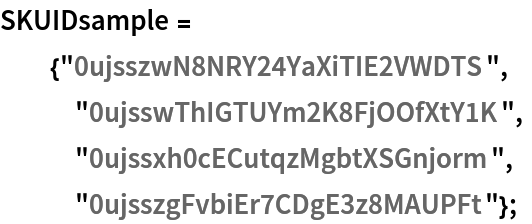 |
Take the first eight hexadecimal digits, converting to decimal and converting from Unix time format:
| In[5]:= |
| Out[5]= | 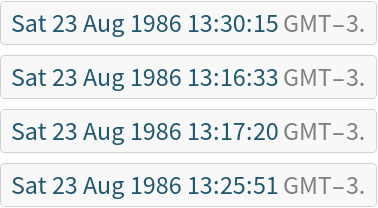 |
It is possible to recover the timestamp from an ID, step by step:
| In[6]:= |
| Out[6]= |
Take just the 8 initial characters:
| In[7]:= |
| Out[7]= |
Convert the hexadecimal to integer:
| In[8]:= |
| Out[8]= |
Convert from Unix time format:
| In[9]:= |
| Out[9]= |
Compare with the value of a current Unix time:
| In[10]:= |
| Out[10]= |
Validate the timestamp at the beginning of the hash:
| In[11]:= |
| Out[11]= |
Breaking the IDs into 2 hexadecimal pairs, we can plot the IDs as a graph, and view the random and repetitive parts:
| In[12]:= |
| Out[12]= | 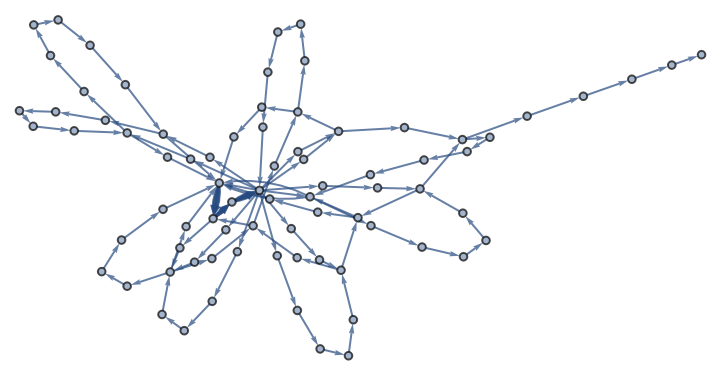 |
We can view a set of IDs as an image:
| In[13]:= | ![ArrayPlot[
FromDigits[#, 16] & /@ StringPartition[#, 1] & /@ ResourceFunction["CreateSortableUniqueID"][30], Frame -> None, ColorFunction -> "Rainbow"]](https://www.wolframcloud.com/obj/resourcesystem/images/e24/e246fac4-12da-441a-9958-04d0020e068a/774425f85577d820.png) |
| Out[13]= | 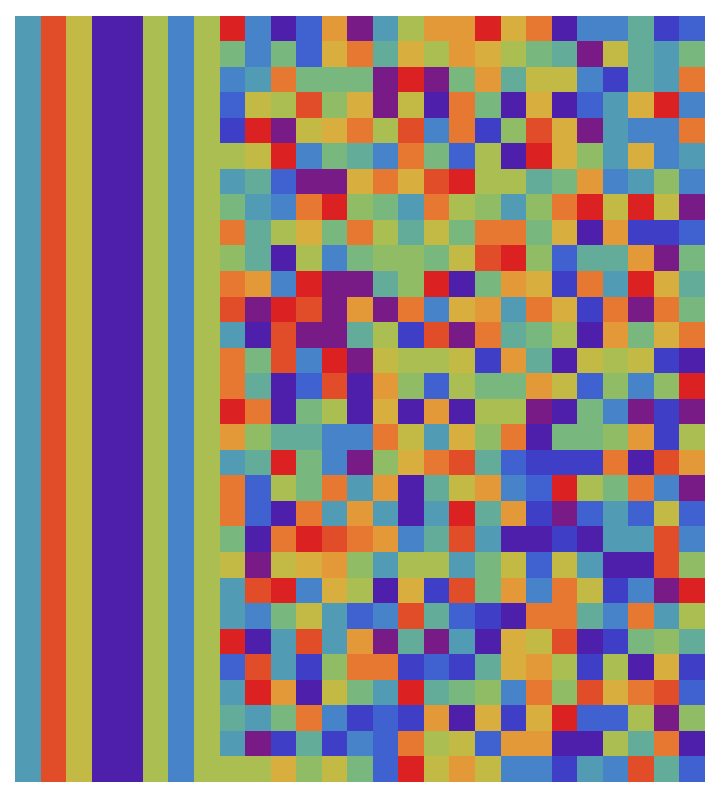 |
We can likewise view a sorted set of IDs as an image:
| In[14]:= | ![ArrayPlot[
Sort[FromDigits[#, 16] & /@ StringPartition[#, 1] & /@ ResourceFunction["CreateSortableUniqueID"][30]], Frame -> None, ColorFunction -> "Rainbow"]](https://www.wolframcloud.com/obj/resourcesystem/images/e24/e246fac4-12da-441a-9958-04d0020e068a/7cb25f9f109d778f.png) |
| Out[14]= | 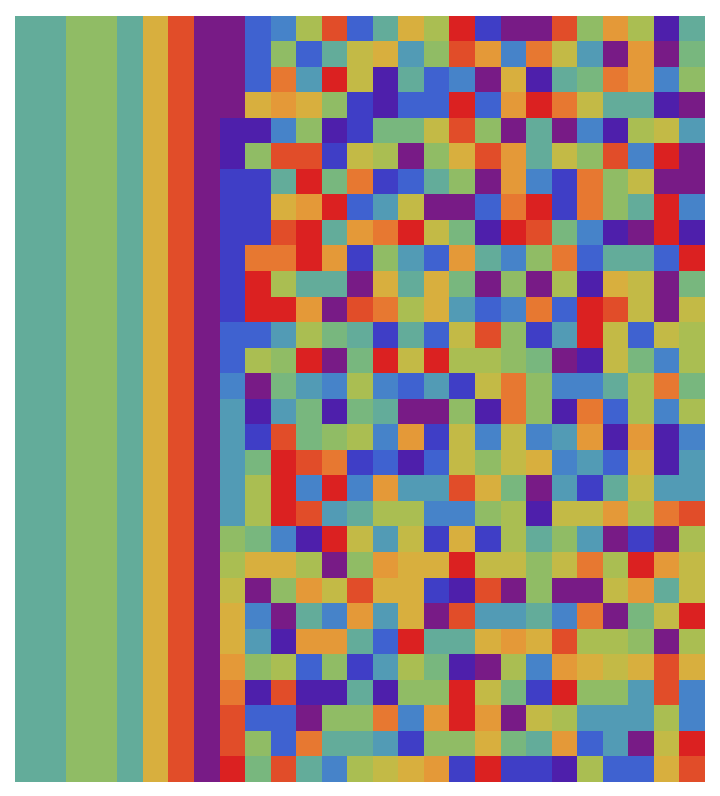 |
This work is licensed under a Creative Commons Attribution 4.0 International License